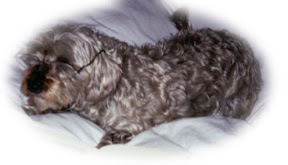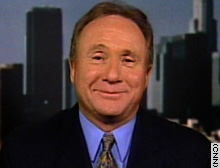On Sept. 16, 1992, the police in New York City held a rally that spun out of control. The cops wanted a new collective-bargaining agreement, and they were angry at Mayor David Dinkins for proposing a civilian review board and for refusing to issue patrolmen 9mm guns. More than a few of them tipsy or drunk, the cops jumped on cars near city hall and blocked traffic near the Brooklyn Bridge. According to some witnesses, they waved placards crudely mocking Mayor Dinkins, the first black mayor of New York, on racial grounds, while at the same time chanting "Rudy! Rudy! Rudy!" to welcome Rudy Giuliani, the crime-busting former U.S. attorney who had arrived in their midst to shore up his political base.It is not clear Giuliani knew exactly what he was getting himself into—he later denied that he did—but video shows him wildly gesticulating and shouting a profanity-laced diatribe against Dinkins...
...The next day the New York newspapers were sharply critical of Giuliani (a Daily News editorial called his behavior "shameful"), and Dinkins, years later, accused him of trying to stir up "white cops to riot." At the time, Giuliani refused to back down or apologize for his remarks, saying only: "I had four uncles who were cops. So maybe I was more emotional than I usually am."
Loyalty has always been the greatest virtue to Giuliani, sometimes trumping all others. By loyalty, Giuliani's critics contend, he means "loyalty to Rudy." Disloyal subordinates learned this the hard way, even if they thought they were serving some higher master, like truth and justice. By the early '80s, Giuliani had risen to claim a top job in the Reagan administration Justice Department. At the time, the department was investigating McDonnell Douglas, the aircraft manufacturer, for making foreign bribes. Without telling career prosecutors who had been working on the case for months, Giuliani met with McDonnell Douglas defense lawyers. The career prosecutors were upset that a top official had gone over their heads, and wrote a letter to Giuliani expressing "shock" and "dismay," and warning that his secret meeting with the defense could undermine the prosecution's case. The letter leaked. Giuliani summoned the prosecutors, Michael Lubin and George Mendelson, to his office—and exploded."As far as I'm concerned, we were watching a madman," Lubin told Jim Stewart for his book "The Prosecutors." "I've never heard or seen anything like it, even in the movies . He ranted and raved for a full twenty minutes." Giuliani, who later dropped criminal indictments against four McDonnell Douglas executives as part of a plea agreement in which the company paid $1.2 million in fines, dismissed Lubin and Mendelson as "jerks." With petty vindictiveness, he withdrew a special Justice Department commendation awarded the two prosecutors.
"Loyalty to Giuliani means staying out of his limelight. Police Commissioner William Bratton discovered that in January 1996, when he made the mistake of posing for the cover of Time magazine in a trench coat to tout New York's astonishing success at fighting crime. Giuliani was not pleased; he ordered city hall's lawyers to start investigating Bratton's expenses, and the commissioner was gone in a couple of months... In truth, both men deserve credit for New York's turnaround. Bratton was a vocal apostle of the "broken window" theory of crime—that small acts of vandalism can create a lawless climate conducive to bigger crimes."
Giuliani never found an equal to Bratton. The next commissioner, Howard Safir, was regarded as a "Yes Rudy" who tried too hard to please his master. ("I am very loyal to Rudy," Safir tells NEWSWEEK. "However, when I disagreed with him … I made sure I did it in private.") The police stepped up their stop-and-frisk campaign in poor, largely minority neighborhoods. A series of ugly police-brutality cases besmirched Giuliani's crimefighting record and alienated blacks and Hispanics. In 2000, when an undercover narcotics detective killed an unarmed security guard named Patrick Dorismond, who was black, Giuliani scoffed that Dorismond was no "altar boy." Actually, he was an altar boy—and had attended Bishop Loughlin high school.
"Giuliani's loyalty to his last police commissioner, Bernard Kerik, bordered on the blind. The two men had come to know each other when Kerik, acting as an off-duty cop, drove Giuliani during his first mayoral campaign in 1989 (Giuliani lost to Dinkins). Kerik was the sort of diamond in the rough Giuliani appreciated—a tough street cop who got things done. Giuliani has insisted that he did not know about Kerik's questionable dealings with two businessmen with alleged mob connections. City hall records reviewed by NEWSWEEK suggest that the mayor may have been briefed on some of these problems just before Kerik was appointed commissioner. But Giuliani has said he has no memory, and his tight palace guard remains close-mouthed. ("There were mistakes made with Bernie Kerik," Giuliani said earlier this month, adding that Kerik's wrongdoing should not outweigh his crimefighting successes.)"
Politicians should wear lie detectors.
Reasons to agree:
- A lot of government and military leaders have been able to convince their people to die, based upon a lie. (reasons to agree & disagree)
- It is wrong to lie.
- We should use technology to our fullest advantage. We should have instant re-play at our football games, and if you want to be a politician in our country, you should have to wear a lie detector when ever you speak. We have the technology to stop people from lying to us, why the heck hasn't some one thought of this earlier.
- Even if it doesn't stop all of the lying, it will serve the same purpose of the radar gun. People drive slowly knowing that they might get caught.
- It aught to be used in at least one presidential debate.

Rudy Lies
Reasons to agree
- In March of 2007, The New York Times reported that Kerik was likely to also be indicted for tax fraud and illegal eavesdropping, and also disclosed that Giuliani had testified under oath in April 2006 that he had in fact been briefed on Kerik's mob links in 2000 — prior to his appointment of Kerik as Corrections Commissioner. Giuliani had previously denied knowing of these connections until years later (NYT Article).
- Mayor Giuliani inherited a $2.3 billion deficit from his predecessor, David Dinkins. He left a $4.8 billion deficit for his successor, Michael Bloomberg. However, he has broadcast campaign advertisements in Iowa and other states, asserting that he "turned a $2.3 billion deficit into a multibillion dollar surplus." Michael Cooper: Giuliani Boasts of Surplus; Reality Is More Complex, New York Times, August 25, 2007
- In May 2007, Giuliani put responsibility for selecting the location of the Office of Emergency Management in the World Trade Center (long time a target of Ilsamist) on Jerome M. Hauer, New York City's first Director of Emergency Management director who had been appointed by Giuliani himself and had served under Giuliani from 1996 to 2000. Hauer has taken exception to that account in interviews and has provided FoxNews and New York Magazine with a memo demonstrating that he recommended a location in Brooklyn but was overruled by Giuliani. Television journalist Chris Wallace interviewed Giuliani on May 13, 2007, about his 1997 decision to locate the command center at the World Trade Center. Giuliani laughed during Wallace's questions and said that Hauer recommended the World Trade Center site and claimed that Hauer said that the WTC site was the best location. Wallace presented Giuliani a photocopy of Hauer directive letter. The letter urged Giuliani to locate the command center in Brooklyn, instead of lower Manhattan, because "not as visible a target as buildings in lower Manhattan." Transcript: Rudy Giuliani on Fox News Sunday (2007-05-14). Retrieved on 2007-09-29, Onetime Giuliani Insider Is Now a Critic. Retrieved on June 12, 2007, Angry Giuliani Aide Lashes Back. Retrieved on June 12, 2007 , Wayne Barrett and Dan Collins, \"The Real Rudy, September 11, 2006 The February 1996 memo read, "The Brooklyn building is secure and not as visible a target as buildings in Lower Manhattan." Giuliani Blames Aide for Poor Emergency Planning

"GIULIANI TAKES LIBERTIES ON HIS NYC RECORD"
"Both the Citizens Budget Commission, a pro-business watchdog group, and the Independent Budget Office, a city-funded fiscal watchdog organization, said Giuliani left his successor, Michael Bloomberg, a projected budget deficit equal to or larger than the one Giuliani inherited from David Dinkins, the previous mayor." (Brian C. Mooney, "Giuliani Takes Liberties On His NYC Record," The Boston Globe, 11/16/07)
FACT: Mayor Giuliani Left New York City With A Massive Budget Deficit:
Giuliani Left New York With A $2.8 Billion Dollar Deficit, Pre-9/11. "Giuliani and his campaign often say that he 'turned a $2.3 billion deficit into a multibillion-dollar surplus.' But both the Citizens Budget Commission, a pro-business watchdog group, and the Independent Budget Office, a city-funded fiscal watchdog organization, said Giuliani left his successor, Michael Bloomberg, a projected budget deficit equal to or larger than the one Giuliani inherited from David Dinkins, the previous mayor. 'Even before 9/11, the Giuliani administration was projecting the next mayor would be facing a deficit of $2.8 billion the following fiscal year that would have to be remedied,' said Ronnie Lowenstein, director of the Independent Budget Office. 'Because of 9/11, it climbed to $4.8 billion.'" (Brian C. Mooney, "Giuliani Takes Liberties On His NYC Record," The Boston Globe, 11/16/07)
"While Giuliani was ranting at moral decay, his personal life was a shambles. In Giuliani's last year in office, Donna Hanover learned that her husband was divorcing her when he gave a press conference. Giuliani's third wife, Judith Nathan, has provided fodder for the tabloids by wearing a tiara to a charity ball and seeming to enjoy Giuliani's perks and power a little too much."


















 REPORT ABUSE
REPORT ABUSE
